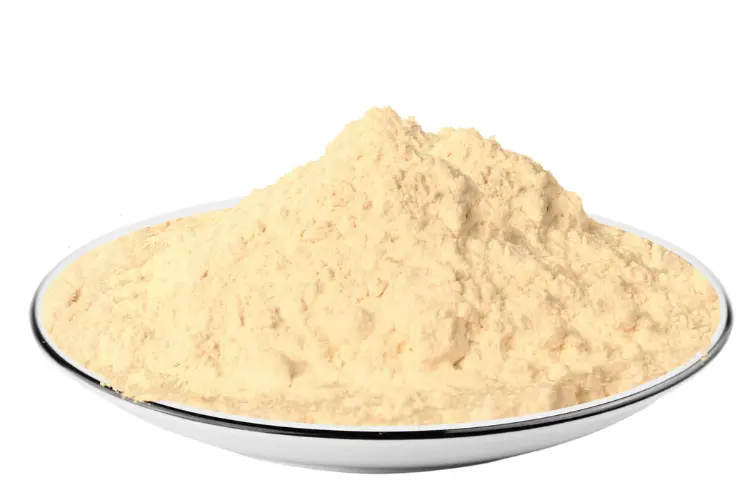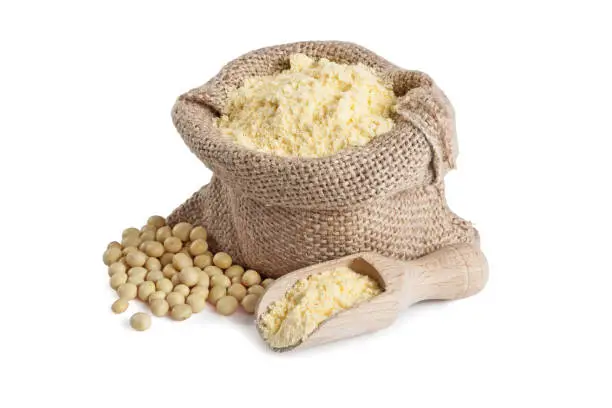Roasted soybeans are crushed into a fine powder to produce soya flour. It is an useful component with a wide range of culinary applications and health advantages:
Uses:
1. Baking: Soya flour is frequently used in baking to give a variety of baked items more moisture, dietary fiber, and nutty flavor. It can be used in place of some of the wheat flour recipes for cakes, muffins, bread, pancakes, and cookies.
2. Thickening Agent: Because soya flour has a high protein and fiber content, it can be used as a thickening agent in liquids , sauces, gravies, and soups. It gives food a healthier feel and helps to thicken the consistency.
3. Breading and Coating: To bread and coat items like chicken, fish, and seafood, soy flour can be used as a gluten-free substitute for breadcrumbs and vegetables before frying or baking.
4. Protein Supplement: To increase the amount of protein in shakes, protein bars, and drinks, soy flour can be used. It gives an increase in plant-based protein and can be especially useful to people who are on vegan or vegetarian diets.
5. Fortification: Foods can be loaded with extra protein, vitamins, and minerals by using soy flour. Cereal, yogurt, and other foods can have it added to them to boost their healthy composition.
Benefits:
1. High Protein Content: Packed with all nine necessary amino acids, soya flour is a great plant-based protein source. Because it offers a full protein source, it is a beneficial supplement to diets that are vegetarian or vegan.
2. Rich in Dietary Fiber: Soy flour has a high dietary fiber content that supports healthy digestion, controls bowel motions, and lowers cholesterol and blood sugar. It can help control weight and lower the chance of developing long-term conditions including diabetes and heart disease.
3. Gluten-Free: Because soy flour is inherently gluten-free, anyone with celiac disease or gluten sensitivity can use it in their baking and cooking. In recipes calling for gluten-free flour, it can be used in place of wheat flour.
4. Low Glycemic Index: Soy flour does not quickly raise blood sugar levels after the intake because of its low glycemic index. Because of this, those who have diabetes or those wanting to control their blood sugar levels can use it.
5. Rich in Vitamins and Minerals: Iron, calcium, magnesium, phosphorus, potassium, and B vitamins are among the important vitamins and minerals that soy flour contains in good amounts. Maintaining general well-being and energy need these minerals.
6. Heart Health: Soy flour is high in unsaturated fats, especially the heart-healthy omega-3 and omega-6 fatty acids. It can help in decreasing blood pressure, cholesterol, as well as the risk of heart disease.


